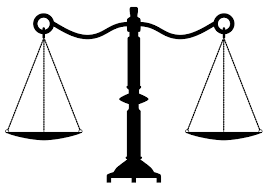Sexual Harassment in the Workplace – Questions and Answers

Sexual harassment can happen to anyone regardless of gender, gender identity, gender expression, sexual orientation, race, ethnicity, age, physical or mental ability, class or religion. However, most victims of sexual harassment are women. According to data from Employment and Social Development Canada on harassment and sexual violence in the workplace, nearly one-third of women in Canada have experienced some form of sexual harassment at work.
When someone is sexually harassed in the workplace, it can prevent them from doing their job effectively and significantly impact their mental health. In some cases, workplace sexual harassment can result in people leaving their jobs if they feel unsafe or not supported after bringing their concerns to their employer. It’s important to recognize the signs of sexual harassment and to know your legal rights for reporting misconduct.
What is the Definition of Sexual Harassment?
Sexual harassment is a broad term that includes physical and verbal behaviours that are sexual and degrading in nature. In Canada, the legal definition of sexual harassment varies slightly between provincial/territorial legislation (human rights and/or occupational safety law) and federal legislation (Canada Labour Code and the Canadian Human Rights Act). Certain behaviour could also amount to a criminal offence pursuant to the Criminal Code.
The Canadian Labour Code defines sexual harassment as any action, conduct, or comment, including of a sexual nature, that can be reasonably expected to cause offence, humiliation, or other physical or psychological injury or illness to an employee. This definition also includes sexual harassment that, on reasonable grounds, would be perceived by an employee as placing a condition of a sexual nature on employment or any opportunity for training or promotion.
The Nova Scotia Human Rights Act defines sexual harassment as a form of discrimination based on sex, sexual orientation, gender identity, or gender expression. It includes unwanted comments or actions that are likely to cause offence or humiliation. This type of behaviour can include:
- Unwanted touching
- Asking for sex in exchange for something (e.g., a job promotion)
- Making sexual jokes
- Posting or sharing sexual images
- Spreading sexual rumours or gossip
Generally, more than one act or event is needed to be considered harassment. In other words, harassment consists of repeated and persistent behaviour that pressures, frightens, intimidates, or incapacitates another person (restricts movement). However, a single incident can be considered harassment if it is severe and has a significant and lasting impact on the victim.
The Canada Criminal Code uses the term ‘criminal harassment’ to define behaviour that knowingly results in another person’s fear for their safety. This type of harassment includes unsolicited and repeated communication, watching, following, or threatening conduct. Extreme forms of sexual harassment could be considered sexual assault under the Criminal Code.
What should I do if a superior is making unwanted advances?
Ideally, those being harassed by a direct supervisor will make it known that the behaviour is unwelcome. It is more likely that the person being harassed will be in a vulnerable situation and afraid to speak out. Where possible, try to resolve the problem through internal reporting and resolution with someone working above your supervisor and/or human resources.
If your employer fails to take reports of sexual harassment seriously, contact a sexual harassment lawyer (also called a sexual offences lawyer) to explain the process for filing a complaint with the Nova Scotia Human Rights Commission. This must be done within one year of the incident related to the complaint (or the most recent incident if there are multiple).
Typically, filing a lawsuit will require advances of a physical nature (e.g., touching), rather than exclusively verbal/emotional harassment. Unwanted physical touching amounts to sexual assault rather than harassment. A person in a position of power (e.g., a manager or supervisor) cannot use their authority to demand or expect sexual favours from employees. Inappropriate physical conduct of a direct supervisor or superior is an abuse of power. The law treats consent differently in relationships involving an abuse of power. Consent is vitiated, or considered not legally valid, if it is obtained by a supervisor or superior, even if both parties have verbally agreed to participate.
There is no limitation period by which you must bring a lawsuit for sexual assault. Please contact a sexual offences lawyer for more information.
What are my Rights if I am Being Sexually Harassed in the Workplace?
Employers have statutory and common law obligations to ensure a work environment free from sexual harassment. Statutes, also called legislation, are written laws developed by either the provincial or federal government. In Nova Scotia, the statutes outlining the responsibilities of employers fall under the Occupational Health and Safety Act (OHSA), Human Rights Act, and the Labour Standards Code. These obligations require employers to have policies and procedures for reporting, resolving, and preventing workplace sexual harassment.
Common law refers to legal rules developed from decisions made by judges in individual court cases. The law states that employers can be held responsible for any harm caused by workers. This includes physical and psychological harm caused by harassment in the workplace. Employers can also face constructive and wrongful dismissal lawsuits for sexual harassment experienced at work, including the creation of a “hostile work environment.” A hostile work environment arises when the words or actions of a coworker or supervisor negatively or severely impact another employee’s ability to do their job.
In the recent decision Caplan v Atas, 2021 ONSC 670, the Ontario Supreme Court of Justice recognized a new common law tort of harassment. A “tort” is something that is actionable by way of a lawsuit, rather than a Human Rights complaint. In this case, the Court considered existing common law torts and concluded that they did not address all aspects of the defendant’s conduct. The Court found that the tort of harassment will be made out:
- Where the defendant maliciously or recklessly engages in communications conduct so outrageous in character, duration, and extreme in degree so as to go beyond all possible bounds of decency and tolerance;
- With the intent to cause fear, anxiety, emotional upset or to impugn the dignity of the plaintiff; and
- The plaintiff suffers such harm.
No other Canadian court has recognized the tort of harassment. Although the decision could potentially be appealed, it reflects legal progress for sexual harassments lawsuits in Canada.
How do I know if I am being sexually harassed?
Some workplace conduct is clearly sexual harassment, such as unwanted kissing, requests for sexual favours, or sexually explicit comments. However, the signs of sexual harassment in the workplace are not always obvious or clear-cut. In today’s society, sexual harassment can often take on more subtle forms, such as suggestive late-night texts or invitations to meetings that somehow turn into dates. For example, any of the following actions can be sexual harassment if they are persistent or severe enough to make an employee feel uncomfortable, intimidated, or distracted in the workplace:
- Comments on an employee’s appearance
- Discussing one’s sex life in front of an employee
- Sending sexually suggestive text messages or emails
- Sending unwanted gifts of a sexual or romantic nature
- Repeated hugs or unwanted touching (such as a hand on an employee’s back)
Quid pro quo is another common type of workplace sexual harassment that can be difficult to recognize. Quid pro quo means “this for that.” In this context, it involves expressed or implied demands for sexual favours in exchange for some benefit (e.g., a raise) or to avoid some detriment (e.g., a demotion) in the workplace.
For something to be considered sexual harassment, the interpretation of the behaviour by the person being harassed is important. It does not matter if the person who’s doing the harassment thinks it is harmless, not sexual, or welcomed. It is still harassment if the behaviour or action is something that you find unwelcomed or offensive.
What should I do if I see sexual harassment in my workplace?
Everyone has the right to a workplace that feels safe and is free of sexual comments and behaviours. It is the employer’s responsibility to take reasonable steps to provide this safe environment. In order to do so, your employer must be aware of misconduct. If you or someone you know is experiencing sexual harassment in the workplace, here are some actions you can take:
Write everything down: Try to keep a written record of the incident(s). Include as much detail as possible, such as the date, time, where it occurred, what was said or done, and who was involved. Keep all notes in a safe, private place outside of the office.
Look for policies: Most employers give you an employee manual when you’re first hired. Review this to find the policies for reporting misconduct and see if there is a phone number for Human Resources.
Report the harassment: File a complaint with your employer, human resources, or the Human Rights Commission. Be sure to get a written report and keep copies. In most cases, there is an option to report the harassment anonymously.
Talk to a lawyer: If you would like to learn more about your legal options, Valent Legal may be able to help. We offer free, confidential legal consultations. Fill out this form to speak with a sexual harassment lawyer for free.
If you take legal action, there are several “remedies” available to you. A remedy is a form of court enforcement resulting from a successful civil lawsuit. Each case is different, but some examples of remedies you may get if your lawsuit is successful are financial compensation or modification of your employer’s behaviour.






















